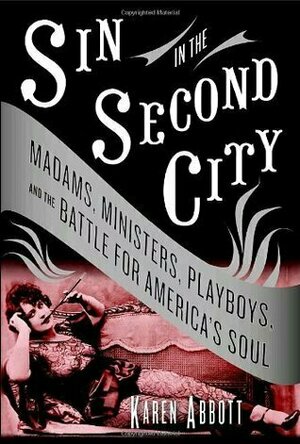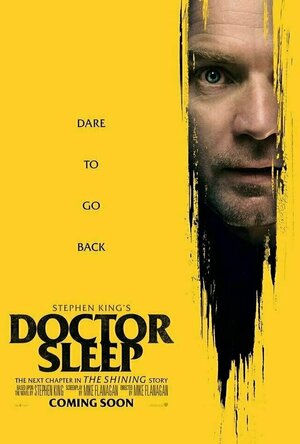
Lonely Planet Prague & the Czech Republic
Lonely Planet, Neil Wilson and Mark Baker
Book
Lonely Planet: The world's leading travel guide publisher Lonely Planet Prague & the Czech Republic...

Grand Slots: Vegas Casino Slot Machines
Games and Entertainment
App
Brand-new and First-class slots for FREE! 20,000,000 Free Coins To Get You Started! Do you get...
Gareth von Kallenbach (980 KP) rated Chief Zabu (2016) in Movies
Oct 8, 2020
It’s perplexing how so very few people seem to comprehend the grand efforts that go into the production of a movie. The numerous individuals involved, the various disciplines and skill sets, the length of production time, etc. The film I have the good fortune to share with you today has essentially been on one of the longest journeys I’ve ever heard of. A journey so lengthy in scope, it was the subject of a recurring gag during the tenure of ‘Mystery Science Theater 3000’. 30 years. That’s right. It actually didn’t take 30 years to literally make/film the movie. Production for the film began in 1986. But due to an unforeseen series of circumstances, production was unable to be completed until 2016. Now if you’re a ‘die hard disciple’ of MST3K, obligations don’t matter. The fact that they thought enough of it to make it the subject of a running joke is advertisement enough to make you want to see the film. So … without further adieu I present for your consideration, “Chief Zabu”
“Chief Zabu” is a socio-political comedy that takes place primarily in New York during the mid-1980s and follows a determined New York businessman who believes his dreams of wealth and political power can be secured by cornering the economic future of a newly independent Polynesian country. The film was directed, produced, and written by Zack Norman (credited as Howard Zuker) and Neil Cohen. The film stars Allen Garfield, Zack Norman, Manu Tupou, Ed Lauter, Marianna Hill, Allan Arbus, Harsh Nayyar, Joseph Warren, Betty Karlen, Tom Nardini, Charles Siegal, Shirley Stoler, Lucianne Buchanan, and Ferdinand Mayne.
Chief Henri Zabu (Tupou) is the leader of a Polynesian country who has been thrust into the world of politics and has journeyed to New York City to secure recognition for his country from the United Nations. Secretly, he has come to hopefully secure investors and the finical backing to kickstart his country’s economy and infrastructure. Ben Sydney (Garfield) and his longtime friend and partner Sammy Brooks (Norman), are a pair of devious and crafty New York realtors going from one mediocre deal to the next while fantasizing about that ‘deal of a lifetime’ that will one day hopefully ‘find them’. It does. Sort of. Through a series of almost unreal interactions with a series of characters ranging from con artists to wealthy individuals who would likely push a family member into a pool if properly motivated, Ben and Sammy believe they’ve got the political and finance connections to make their ambitions a reality. And then, just when things are going so well … the proverbial rug looks as though it’s going to get pulled out from under them. So it would seem. New York realtors with political aspirations and possibly questionable morals. Does this ring any bells anyone?
Setting aside the comedic aspects of the film, it’s a fictional yet not unrealistic representation some of the political and economic influences that surrounded the arena of the United Nations in the mid to late 80’s. An interesting side story that depicts how first world nations would seize the opportunity to try and capitalize on newly independent or weaker nations by securing footholds in their economic and political power bases. Thereby funneling a nation’s resources and wealth away from those nations.
In the end, the film captures the 80’s in America much for what it was with a comedic twist. Celebrity worship, political backstabbing, and materialism. The only other film I can think of off the top of my head that did better would be ‘American Psycho’. Thankfully and perhaps gratefully, ‘Chief Zabu’ accomplished this WITHOUT the excessive and unprecedented depictions of violence. I’d give this film 4 out of 5 stars. The only way to one-up the movie is if we could take it back in time and give it the ‘MST3K’ treatment.

Mastering RabbitMQ
Emrah Ayanoglu, Yusuf Aytas and Dotan Nahum
Book
Master the art of developing message-based applications with RabbitMQ About This Book * Learn how to...
Neon's Nerd Nexus (360 KP) rated Doctor Sleep (2019) in Movies
Nov 3, 2019 (Updated Nov 4, 2019)
Characters are all so likable and we spend a good chunk of time with all (including the menacing and creepily intimidating villains) which I thought was really nice and this helps create great attachment meaning that when a death hits you really feel the impact of the loss adding poweful emotion and a small amount of grievence to each one (and adds to the running theme of all life being important and death being something everyone fears/cant escape). Acting is great especially with the new cast replicating old characters from the shining. Doctor sleep also gets nostalgia right using parts of the shining respectfuly and tastfully rather than just simply replicating them for a cheap cash grab, instead choosing to intrigate them as crucial parts of the plot. All in all this movie unnerved me, engrosed and provoked me making me think more on the subject of death the journey we all take towards and how we should all pay more care and give more thought to the ones we let go.

Effective Birth Preparation: Your Practical Guide to a Better Birth
Book
In response to the success of the award winning "Natal Hypnotherapy CDs" and courses, founder Maggie...

Sin in the Second City: Madams, Ministers, Playboys, and the Battle for America's Soul
Book
Step into the perfumed parlors of the Everleigh Club, the most famous brothel in American...

Preschool All In One Basic Skills Space Learning Adventure A to Z by Abby Monkey® Kids Clubhouse Games
Education and Games
App
50% OFF SALE - LAUNCH DISCOUNT TODAY: February 5-10, 2017 ***** Developed by an award-winning...
Merissa (13742 KP) rated The Touch (The Cotiere Chronicles, #2) in Books
Dec 17, 2018 (Updated May 17, 2023)
Alexander and Jessi are meant to be together, it's just Jessi has serious 'reservations,' so much so that for that reason (and others) she runs away and tries to disappear. She does a very good job too, and Alexander spends thousands of dollars trying to locate her. When they finally meet, fireworks explode. The story then takes a humorous, sad, and at times heartbreaking, turn as Alexander tries to find out just why Jessi is so scared.
Full of tender moments, this book sweeps you along to the conclusion, leaving you wanting to know the ending, but also dreading it at the same time as you don't want it to end. I will just add here that when the story behind Jessi's mum and dad came out, I actually started to feel sorry for him, thinking that he was the injured party. However, when she meets him and he opens his mouth, I quickly returned to my original feelings towards him. Read it for yourself, you'll see why.
This story came to the perfect ending for Alexander and Jessi, and I can't wait to see where their story takes them. I loved the cameo performance from Leisl and Koen, although I wish it could have been under better circumstances. I know that they will be okay though!!! The final thing I will add is that Michelle Bolanger's characters are so lifelike that even during a couple of pages of an epilogue, you will connect with a character and feel sorrow for them. I can't wait for the next book and the rollercoaster journey I know I will be taken on. Highly recommended.
* A copy of this book was provided to me with no requirements for a review. I voluntarily read this book, and the comments here are my honest opinion. *
Merissa
Archaeolibrarian - I Dig Good Books!
Jan 19, 2016

Field Notes from Elsewhere: Reflections on Dying and Living
Book
In the fall of 2005, Mark C. Taylor, the controversial public intellectual and widely respected...


